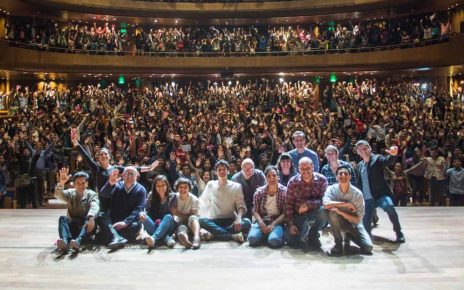The landscape of online entertainment has undergone a dramatic transformation in recent years, driven by advancements in modern technologies. From immersive virtual realities to AI-driven content recommendations, technology is reshaping how we experience entertainment. This article explores the various ways in which modern technologies are revolutionizing online entertainment, highlighting key innovations and their impact on the industry.
1. Virtual Reality (VR) and Augmented Reality (AR)
1.1 Immersive Experiences
Virtual Reality (VR) and Augmented Reality (AR) technologies have taken online entertainment to new heights by offering immersive experiences that were previously unimaginable. VR creates fully virtual environments where users can interact with 3D spaces and objects as if they were physically present. This technology has transformed gaming, allowing players to engage in fully immersive worlds and scenarios.
1.2 Enhanced Interactivity
AR overlays digital content onto the real world, enhancing physical environments with virtual elements. Applications like Pokémon GO have demonstrated the potential of AR in gaming by blending virtual characters with real-world settings. Similarly, AR is being used in live streaming and interactive media to create dynamic and engaging experiences for viewers.
1.3 Expanding Beyond Gaming
The impact of VR and AR extends beyond gaming. In entertainment sectors such as movies and concerts, these technologies provide novel ways to experience content. Virtual concerts and VR cinema allow users to experience performances and films in interactive and engaging ways, creating a sense of presence and involvement.
2. Artificial Intelligence (AI) and Machine Learning
2.1 Personalized Content Recommendations
Artificial Intelligence (AI) and machine learning algorithms are revolutionizing how content is discovered and consumed online. Platforms like Netflix, Spotify, and YouTube use AI to analyze user preferences and viewing habits, offering personalized recommendations that enhance the user experience. These algorithms help users find content they might enjoy based on their past behavior and interactions.
2.2 Content Creation and Enhancement
AI is also transforming content creation. Tools powered by AI can generate music, write scripts, and even create visual art. These technologies assist creators by automating repetitive tasks and providing innovative ideas, making content creation more efficient and diverse. AI-driven video editing tools, for example, can enhance visual effects, optimize sound, and even create deepfake content.
2.3 Interactive and Adaptive Content
AI enables interactive and adaptive content experiences. For instance, AI chatbots and virtual assistants can engage users in real-time, offering personalized interactions and support. Additionally, AI-driven interactive storytelling in games allows narratives to adapt based on player choices, creating unique and dynamic gameplay experiences.
3. Blockchain Technology and Digital Ownership
3.1 Digital Asset Ownership
Blockchain technology is reshaping the concept of digital ownership in online entertainment. Non-fungible tokens (NFTs) are a prime example of how blockchain can be used to represent ownership of unique digital assets, such as artwork, music, and in-game items. NFTs provide a way to verify authenticity and ownership of digital content, creating new opportunities for creators and collectors.
3.2 Transparent Transactions
Blockchain's decentralized nature ensures transparency and security in transactions. This is particularly beneficial for online entertainment platforms, where issues related to piracy, fraud, and payment disputes can arise. By using blockchain, platforms can offer secure and transparent transactions, reducing the risk of fraud and enhancing trust between creators and consumers.
3.3 Smart Contracts and Royalties
Blockchain technology also facilitates the use of smart contracts, which automate and enforce agreements between parties. In the context of online entertainment, smart contracts can be used to manage royalties and licensing agreements, ensuring that creators are fairly compensated for their work. This technology streamlines payment processes and reduces administrative overhead.
4. Streaming Technology and High-Definition Content
4.1 High-Quality Streaming
Advancements in streaming technology have significantly improved the quality of online entertainment. High-definition (HD) and ultra-high-definition (UHD) streaming offer viewers crisp, clear visuals and immersive audio experiences. Services like Netflix, Disney , and Amazon Prime Video have embraced these technologies, providing high-quality content that enhances the viewing experience.
4.2 Reduced Latency and Buffering
Technological improvements in streaming infrastructure have also reduced latency and buffering issues. Content delivery networks (CDNs) and adaptive streaming technologies ensure smooth playback by dynamically adjusting video quality based on internet speed and device capabilities. This results in a more enjoyable and uninterrupted viewing experience.
4.3 Expansion of Streaming Platforms
The rise of streaming platforms has transformed the entertainment landscape. Subscription-based services, live streaming platforms, and pay-per-view models offer a wide range of content options, from movies and TV shows to live events and gaming. This shift has led to increased competition and diversity in content offerings, giving consumers more choices than ever before.
5. Social Media Integration and Content Sharing
5.1 Influencer and User-Generated Content
Social media platforms have become integral to the online entertainment ecosystem. Influencers and content creators use platforms like Instagram, TikTok, and YouTube to reach audiences and share their content. User-generated content (UGC) has also gained prominence, allowing individuals to create and share their own entertainment, from viral videos to creative challenges.
5.2 Real-Time Interaction and Engagement
Social media enables real-time interaction and engagement between creators and audiences. Live streaming on platforms like Twitch and Facebook Live allows viewers to interact with streamers, participate in live chats, and influence the content being produced. This real-time engagement fosters a sense of community and connection, enhancing the overall entertainment experience.
5.3 Cross-Platform Integration
Social media platforms often integrate with other entertainment services, allowing users to share content seamlessly across different platforms. This cross-platform integration helps increase the reach and visibility of content, driving engagement and encouraging more people to participate in online entertainment.
6. Gamer-Centric Technologies
6.1 Cloud Gaming
Cloud gaming has emerged as a game-changer in the gaming industry. Platforms like Google Stadia and Microsoft xCloud allow players to stream games directly from the cloud without the need for high-end hardware. This technology makes gaming more accessible, enabling users to play demanding titles on various devices, including smartphones and tablets.
6.2 Enhanced Graphics and Performance
Advancements in graphics processing units (GPUs) and gaming engines have led to significant improvements in graphics and performance. Modern games feature realistic visuals, advanced physics, and immersive sound design, creating highly engaging experiences. Technologies like ray tracing and AI-enhanced graphics further enhance visual fidelity and realism.
6.3 Virtual and Augmented Reality Integration
The integration of VR and AR technologies into gaming has opened up new possibilities for immersive gameplay. VR headsets offer fully immersive gaming experiences, while AR overlays virtual elements onto the real world, creating interactive and engaging gameplay scenarios. These technologies push the boundaries of traditional gaming and offer novel ways to experience entertainment.
Conclusion
Modern technologies are profoundly transforming the landscape of online entertainment, offering new possibilities and enhancing user experiences. From immersive VR and AR environments to AI-driven content recommendations and blockchain-based digital ownership, these innovations are reshaping how we engage with and enjoy entertainment. As technology continues to evolve, we can expect even more exciting developments that will further enrich the online entertainment experience. Embracing these advancements allows us to explore new frontiers and redefine the boundaries of what is possible in the world of entertainment.




